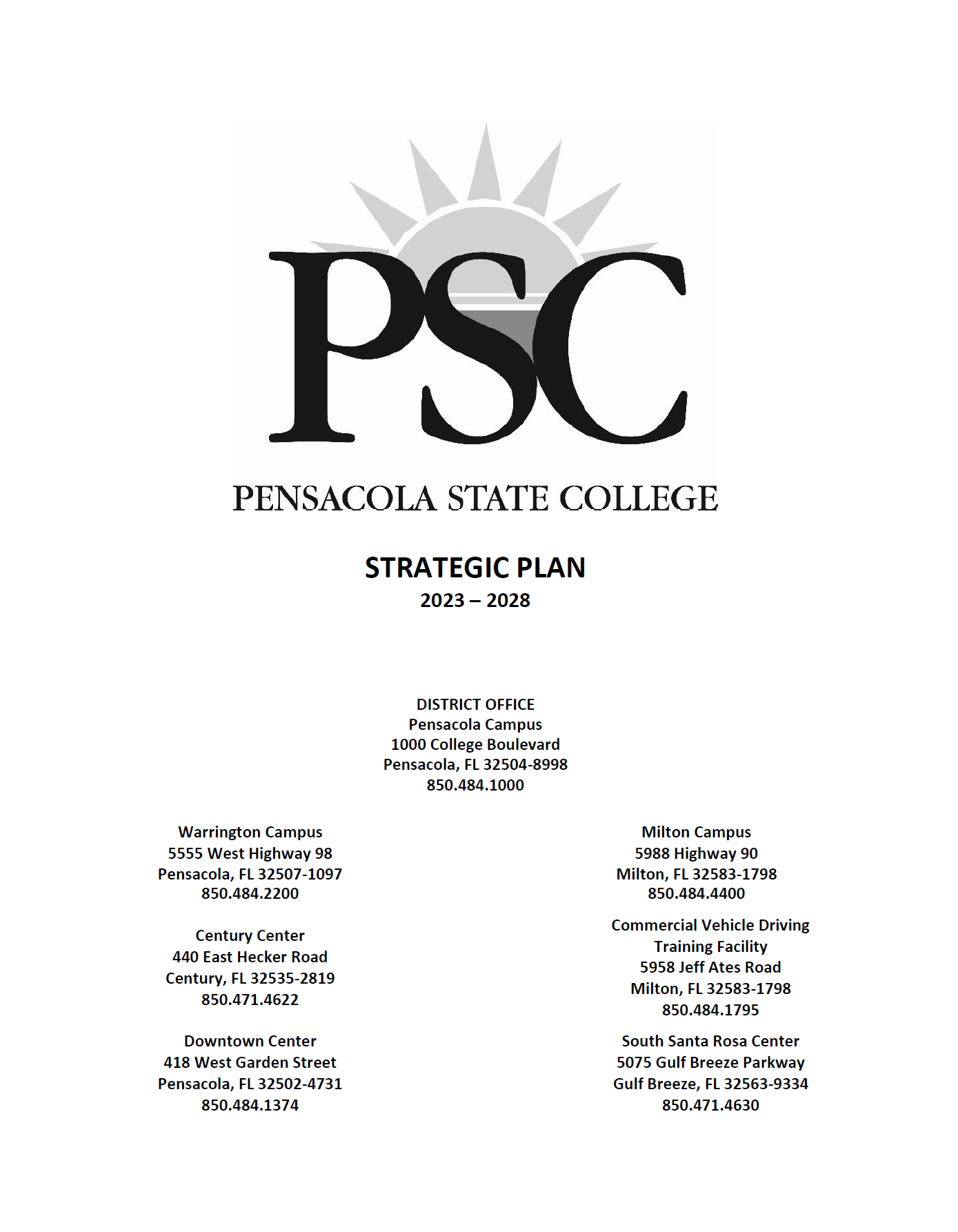Pensacola State College is a state college that was founded as Pensacola Junior College in 1948. As the oldest and largest college in the Panhandle, PSC serves traditional and non-traditional students in Northwest Florida and Southern Alabama.
During its first year, 136 students enrolled at the college. Current enrollment is about 26,000 students.
With six convenient locations, PSC has campuses in Milton, Pensacola and Warrington as well as centers in Century and South Santa Rosa County.
Pensacola State College is widely recognized as a premier, student-friendly college that competes with the best – offering more than 100 programs, state-of-the-art resources, and a stellar faculty. Nationally ranked in the Top One Percent in affordable tuition, Pensacola State College is a smart move toward a bachelor’s degree or a high-tech career. Offerings include: Bachelor of Applied Science in Administration and Supervision, Bachelor of Science in Nursing, Associate in Arts, Associate in Science, and career-oriented certificate programs.
The B.A.S. and B.S.N. programs open doors for career advancement and retraining for those who have completed associate degrees. Students earning A.A. degrees have a guaranteed transfer to Florida’s 12 state universities. Students also transfer easily to prestigious colleges such as Cornell, Duke, Vanderbilt and Tulane. For students earning A.S. degrees and career-oriented certificates, job placement is nearly 100 percent in many technical areas. The A.S. degree also transfers to Florida universities. Pensacola State also offers excellent opportunities via Dual Enrollment, GED and Continuing Education programs.
For more information, call (850)484-1000.

 PirateQ
PirateQ 

